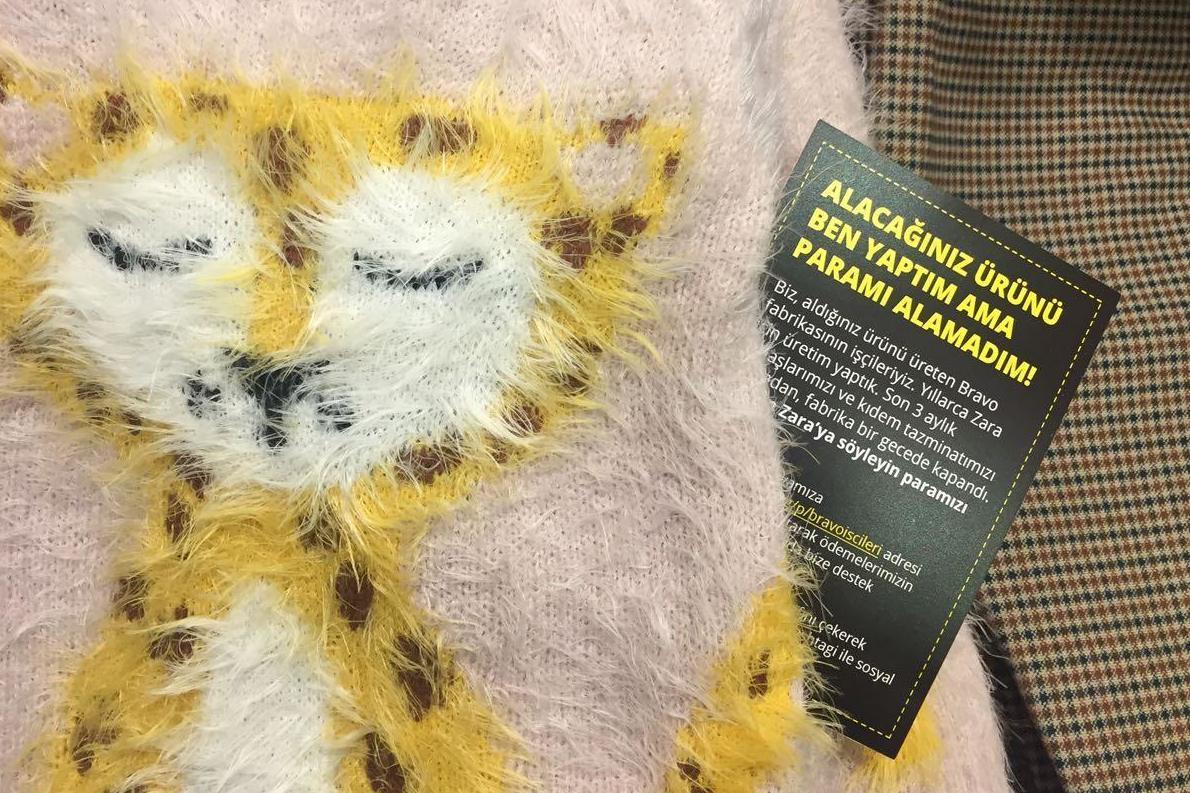Are Zara labourers’ ‘pleas for help’ the result of a fast-fashion business model?
The story of the handmade label that shocked the world

Zara found themselves at the epicentre of a retail scandal this weekend, as customers reported finding notes in their clothes written by allegedly unpaid workers.
Shoppers in Istanbul uncovered a series of handmade labels from third-party manufacturers, which read: “I made this item you are going to buy, but I didn’t get paid for it.”
The workers claim to have been employed by Bravo, which was shut down overnight in July 2016 and say that they are owed three months’ worth of pay, the Associated Press reports.
A spokesperson for Inditex, the label's parent company, told The Independent that they are committed to reimbursing those who have been affected as quickly as possible:
"Inditex has met all of its contractual obligations to Bravo Textil and is currently working on a proposal with the local IndustriALL affiliate, Mango and Next to establish a hardship fund for the workers affected by the fraudulent disappearance of the Bravo factory’s owner."
Worth an estimated £8.6bn, Zara is largely credited for being one of the world’s most successful high street brands.
While the Spanish chain might always one step ahead of its competitors from a design perspective, when it comes to matters of sustainability, they are less attentive than they are avant-garde.
With Zara stores around the world receiving biweekly drops of new garments, their business model extends beyond “fast fashion”, as described by Inditex chief executive and chairman Pablo Isla to The Daily Telegraph.
With products hitting stores just three weeks after they’re designed, Zara does not simply accelerate beyond its high street companions; it zooms past like a shiny sartorial supercar.
Owned by retail magnate Amancio Ortego, the world’s fourth richest person, the popular brand is certainly meeting the instantaneous demands on the modern consumer, often producing pieces inspired by high-end designers just weeks after they’ve debuted on the catwalk.
However, as sustainability becomes an increasingly prevalent talking point in fashion and shoppers wise up to the provenance of their clothing, is it only a matter of time until more consequences of Zara’s uniquely speedy business model become clear?
Loyal fans of the brand were shocked by the news, taking to Twitter to voice their dismay.
It's not the first time that Zara has been linked with unethical labour practices, with a 2013 article by The Fashion Law accusing the high street brand of using slave labour in Argentina.
Shopping with a conscience is more popular than ever before, with new, trendy sustainable fashion labels launching every week and more established high street labels launching environmentally-friendly lines.
H&M recently launched a “Conscious Collection” which uses organic and recycled materials wherever possible as part of the Swedish label’s pledge to make all of its clothing sustainable by 2030.
Stella McCartney also has been a perennial leading light in the way of sustainable fashion, producing vegan-friendly pieces and employing ethical fabrics that never compromise on style.
It’s only a matter of time until other major retailers feel obliged to follow suit, in an ethically-sourced fashion.
Join our commenting forum
Join thought-provoking conversations, follow other Independent readers and see their replies
Comments
Bookmark popover
Removed from bookmarks